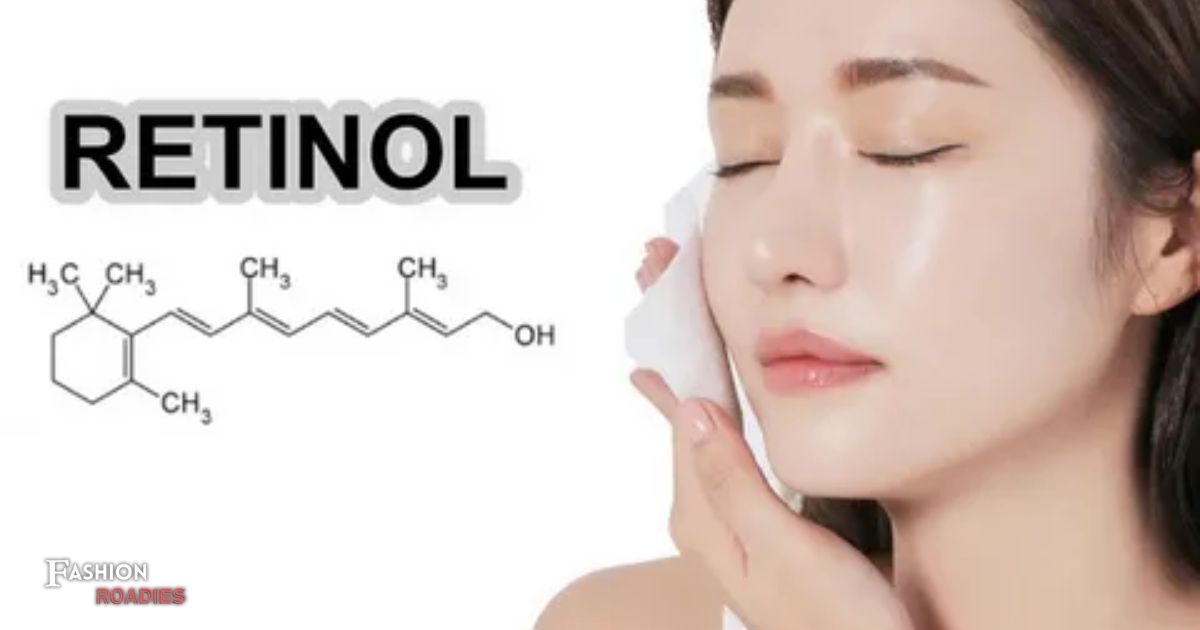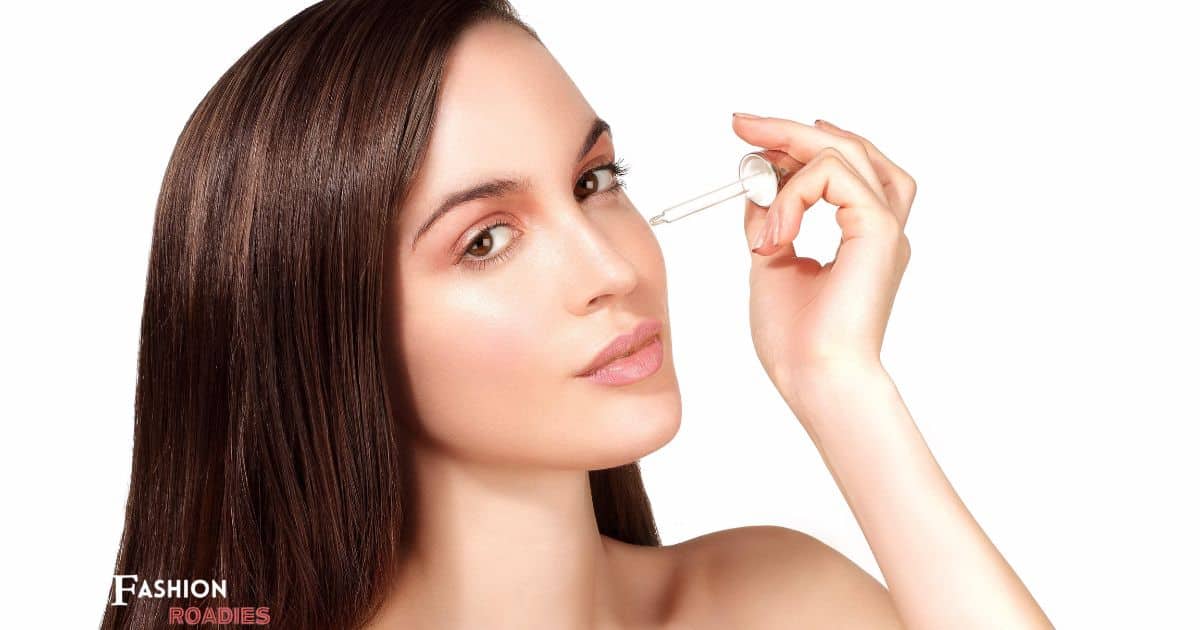Retinol, the enigmatic powerhouse in the world of skincare, unveils its secrets as we delve into its scientific wonders. This transformative ingredient, renowned for its ability to rejuvenate and restore youthful radiance, has captivated the beauty industry. In this article, we embark on a journey to unravel the mysteries of retinol, exploring its benefits, mechanisms, and different forms in skincare. Join us as we demystify the myths and misconceptions surrounding retinol, empowering you to incorporate this remarkable ingredient into your skincare routine with confidence.
Key Takeaways
- Retinol stimulates collagen production and increases cell turnover.
- It reduces the appearance of fine lines, wrinkles, and age spots.
- Retinol can treat acne and prevent breakouts.
- Regular use of retinol can slow down the signs of aging.
The Science Behind Retinol
Examining the molecular structure and skin cell interactions of retinol provides valuable insights into the science behind its powerful anti-aging properties. Retinol, a derivative of vitamin A, is widely known for its numerous benefits in skincare. Its effectiveness lies in its ability to stimulate collagen production and increase cell turnover, resulting in smoother, firmer, and more youthful-looking skin. Retinol works by binding to specific receptors on the surface of skin cells, initiating a cascade of cellular events that promote renewal and repair. This process not only helps to reduce the appearance of fine lines, wrinkles, and age spots but also improves skin texture and tone. Furthermore, retinol has been shown to have antioxidant properties, protecting the skin against free radicals and environmental damage. These scientific findings highlight the undeniable benefits and effectiveness of retinol in skincare.
Benefits of Retinol for Skin
Retinol, a derivative of vitamin A, offers numerous benefits for the skin. It promotes youthful-looking skin by stimulating collagen production, reducing the appearance of wrinkles, fine lines, and discoloration. Additionally, retinol helps to improve skin texture and tone, making it a popular ingredient in anti-aging skincare products.
Youthful Skin With Retinol
Achieving youthful skin with the use of retinol can be attributed to its ability to enhance collagen production and decrease the appearance of fine lines and wrinkles. Retinol, a derivative of vitamin A, has gained popularity in the skincare industry due to its numerous anti-aging benefits. It works by stimulating the production of collagen, a protein that provides structure and elasticity to the skin. By increasing collagen production, retinol helps to improve the skin’s texture and firmness, resulting in a more youthful appearance. Additionally, retinol can reduce the appearance of fine lines and wrinkles by promoting cell turnover and exfoliation. Although retinol is highly effective, some individuals may experience skin irritation or sensitivity. In such cases, alternative options such as retinol alternatives or lower concentrations of retinol can be considered.
Transition: In addition to reducing the appearance of fine lines and wrinkles, retinol also has the potential to address other common skin concerns such as wrinkles and discoloration.
Reduces Wrinkles and Discoloration
The use of retinol in skincare has been shown to effectively reduce wrinkles and discoloration, providing individuals with smoother and more even-toned skin. Retinol, a derivative of vitamin A, is a powerful ingredient that has been extensively studied for its anti-aging benefits. It works by stimulating collagen production, which helps to reduce the appearance of fine lines and wrinkles. Additionally, retinol exfoliates the skin, improving its texture and promoting a brighter complexion. Regular use of retinol can also help to fade dark spots and hyperpigmentation, resulting in a more even skin tone. It is important to note that retinol can cause skin sensitivity and irritation, so it is recommended to start with a low concentration and gradually increase usage. Understanding how retinol works on your skin is essential for achieving optimal results.
How Retinol Works on Your Skin
An understanding of the biological mechanisms behind the effects of retinol on skin can help inform the development of more effective skincare products. Retinol, a derivative of vitamin A, has been widely studied for its ability to improve skin texture and treat acne. Here’s how it works:
- Retinol increases cell turnover: It stimulates the production of new skin cells, helping to slough off dead skin cells and promote a smoother skin texture.
- Retinol unclogs pores: It regulates the production of sebum, the oily substance that can clog pores and lead to acne. By reducing sebum production, retinol helps prevent breakouts.
- Retinol reduces inflammation: Acne is often accompanied by inflammation, and retinol has anti-inflammatory properties that can calm irritated skin and reduce redness.
Different Forms of Retinol in Skincare Products
There are various forms of retinol available in skincare products, and understanding their differences can help consumers make informed choices. Retinol, a derivative of vitamin A, is a popular ingredient in anti-aging products due to its ability to promote collagen production and improve skin texture. The most common form of retinol used in skincare is retinol itself, which is converted into retinoic acid once applied to the skin. Retinol esters, such as retinyl palmitate and retinyl acetate, are also used in skincare products. These esters have a milder effect on the skin compared to retinol and are more suitable for individuals with sensitive skin. Additionally, retinol derivatives, such as retinaldehyde and retinyl aldehyde, offer similar benefits to retinol but with less potential for irritation. It is important to note that the effectiveness of retinol in anti-aging products can vary depending on the formulation and concentration used. Therefore, it is crucial for consumers to read product labels and consult with skincare professionals to determine the most suitable form of retinol for their individual needs.
Incorporating Retinol Into Your Skincare Routine
Evaluate your current skincare routine to determine how you can effectively incorporate retinol for optimal anti-aging benefits. Retinol, a form of vitamin A, is a powerhouse ingredient in skincare known for its ability to improve the appearance of fine lines, wrinkles, and uneven skin tone. To successfully incorporate retinol into your routine, consider the following:
- Start slow: Introduce retinol gradually to allow your skin to adjust. Begin with a lower concentration and gradually increase over time.
- Use at night: Retinol can make your skin more sensitive to the sun, so it’s best to apply it at night and follow up with a broad-spectrum sunscreen during the day.
- Moisturize: Retinol can sometimes cause dryness or irritation. Combat this by moisturizing your skin regularly to keep it hydrated and balanced.
Common Myths and Misconceptions About Retinol
There are several common myths and misconceptions about retinol that need to be clarified. One of the most prevalent misconceptions is that retinol always leads to skin sensitivity. While it is true that retinol can cause some initial irritation, this sensitivity typically subsides as the skin adjusts to the product. Additionally, there is a misconception that retinol makes the skin more prone to sun damage. In reality, retinol can make the skin more sensitive to the sun, but this can be easily managed by incorporating sunscreen into your skincare routine.
Retinol and Sensitivity
How does retinol affect skin sensitivity and what are the common myths and misconceptions surrounding its use?
Retinol is a powerful ingredient in skincare known for its ability to address both acne and aging concerns. However, there are some misconceptions and myths surrounding its use, particularly when it comes to skin sensitivity.
Common myths and misconceptions about retinol and sensitivity include:
- Retinol always causes irritation: While retinol can cause initial redness and peeling, proper usage and gradual introduction can minimize these side effects.
- Retinol is not suitable for sensitive skin: While sensitive skin types may need to be more cautious with retinol, it can still be a beneficial ingredient when used correctly.
- Retinol makes skin more sensitive to the sun: While retinol in skin care can increase skin sensitivity initially, proper sun protection can mitigate this risk.
Overall, understanding the facts and dispelling the myths surrounding retinol and sensitivity is crucial in harnessing its benefits for healthy and youthful-looking skin.
Retinol and Sun Sensitivity
Often misunderstood, retinol can increase sun sensitivity, but proper sun protection can help mitigate this risk. Retinol, a derivative of vitamin A, is a popular ingredient in skincare products due to its ability to improve the appearance of fine lines, wrinkles, and skin texture. However, it is important to note that retinol can make the skin more susceptible to sun damage. When applied topically, retinol can cause the skin to become more sensitive to the sun’s harmful UV rays, which can lead to sunburn and an increased risk of skin cancer. To counteract this, it is crucial to incorporate effective sun protection measures when using retinol. This includes wearing sunscreen with a high SPF, seeking shade during peak sun hours, and wearing protective clothing. By practicing proper sun protection, individuals can enjoy the benefits of retinol without compromising their skin’s health and aging process.
Frequently Asked Questions
Can Retinol Be Used by People With Sensitive Skin?
Retinol can be used by people with sensitive skin, but it may cause irritation. It’s advisable to start with a low concentration and gradually increase. Alternatively, there are alternatives to retinol for sensitive skin, such as bakuchiol or niacinamide.
Are There Any Side Effects of Using Retinol?
Using retinol in skincare can have side effects such as dryness, redness, and peeling. It is important to start with a low retinol dosage and gradually increase. Alternatives like bakuchiol can provide similar benefits with fewer side effects.
Can Retinol Help With Acne?
Retinol, a derivative of vitamin A, is widely used in skin care for its anti-aging properties. While it is not specifically formulated for acne treatment, retinol can help improve skin texture, which may indirectly benefit individuals with acne-prone skin.
How Long Does It Take for Retinol to Show Results on the Skin?
Retinol, a derivative of vitamin A, offers numerous benefits for the skin. When it comes to its effectiveness, results vary depending on individual factors such as skin type and concerns. Generally, noticeable improvements may be seen within a few weeks to a few months of consistent use. Retinol’s effectiveness can be attributed to its ability to stimulate collagen production, increase cell turnover, and reduce the appearance of fine lines and wrinkles. Compared to other skincare ingredients, retinol is considered a gold standard due to its proven efficacy in addressing various skin concerns.
Can Retinol Be Used During Pregnancy or While Breastfeeding?
Retinol is a commonly used ingredient in skincare products due to its anti-aging benefits. However, when it comes to safety during pregnancy or while breastfeeding, caution is advised. It is recommended to consult with a healthcare professional before using retinol during these periods.
Conclusion
In conclusion, retinol is a powerful ingredient in skincare that works wonders for your skin. Its scientifically proven benefits include reducing wrinkles, improving skin texture, and promoting collagen production. With its various forms available in skincare products, incorporating retinol into your skincare routine is easy. Don’t be swayed by common myths and misconceptions, as retinol is a trusted and effective ingredient backed by extensive research. Embrace the power of retinol and unlock the potential for youthful and radiant skin.










